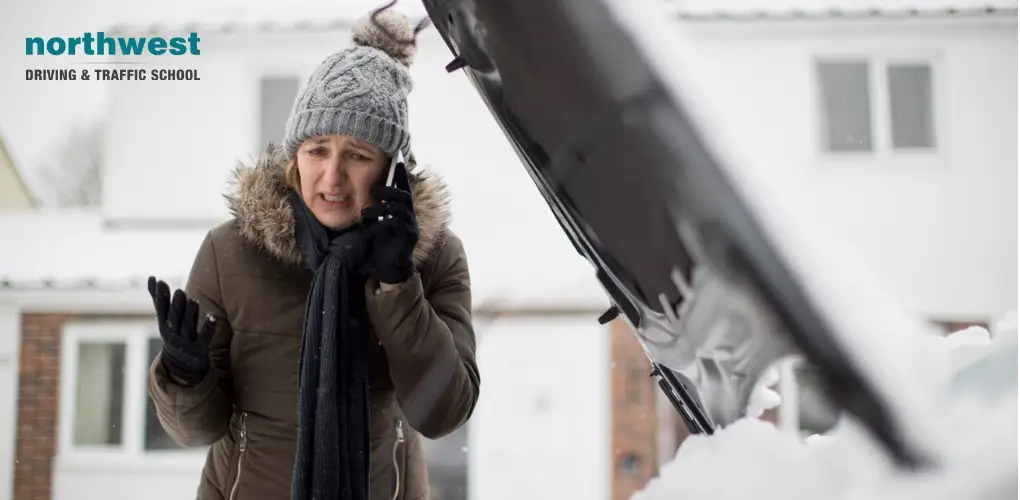- Others
How To Avoid Breaking Down In The Winter

Freezing winter temperatures and the extra electrical load of running lights, wipers, and heat all the time can take it out of your car. In the winter, your car is 18% more likely not to start, you’re 27% more likely to have a cutout, 36% more likely to end up with a flat tire, and your car is 51% more likely to have battery problems in the winter.
To circumvent these cold-induced mechanical issues, here are some tips on how to avoid breaking down in the winter.
- Get your antifreeze checked regularly. Frozen radiators are expensive to replace and the lack of cooling can cause problems throughout your engine, resulting in a very expensive mechanic’s bill. Most antifreeze needs to be replaced every two years.
- Get a full winter service. Your mechanic will be able to all your car’s fluid levels, your brakes, check if your tires are in bad condition, check the health of your battery and suggest things like engine antifreeze and winter coolants that you can use to keep your car healthy.
- While it might seem like the least of your worries, your wiper pump is connected to the rest of your car’s electronics. If it freezes up because you haven’t been using and de-icing screenwash additive and you keep running the pump, then it could blow a fuse that is connected to something far more important, like your starter motor or lights.
- Clear the snow from your vehicle as soon as you can. We know it isn’t anyone’s favorite jobs, but leaving it for a few days will increase the chance of it partially melting and refreezing or becoming compacted, making it a lot more difficult to shift.
- If you do find that your door locks have frozen, a quick spray of a water-dispersant like WD-40 will help; try not to get it on your paintwork. A light application of petroleum jelly or silicone polish on the door seals will stop them from sticking in cold weather.
- Don’t leave wet clothes in your car overnight. As they start to dry out, they will release moisture into the air. This water in the air can freeze inside the vehicle, meaning you’ll have to deal with a frozen ignition lock in the morning.
- Don’t open your windows as soon as you pull away in the morning. They may be frozen in the frames overnight and trying to open them immediately could mean they become detached from the opening mechanism. Wait until your car has warmed up so any ice has had time to melt. Your air-con is far more efficient at demisting your windscreen anyway.
- Try to clean your vehicle regularly during the winter to remove the corrosive road salt that can damage your paint and rust your undercarriage. But be careful not to get any water inside your brake drums or cables. There is a good chance that it won’t have time to evaporate before the temperature drops, and you could end up with frozen rear drum brakes and handbrake cables, which means you won’t be able to get moving in the morning.
- If you hear a loud screaming or screeching noise when you’re starting your car that is accompanied by smoke and a burning smell, stop immediately and turn the engine off. Water from the windscreen can occasionally get into your alternator and freeze the rotor in place. If this does happen, there is nothing for it but to push the car back into the garage and break out the heaters, as trying to drive with a stuck alternator will damage your engine significantly.
- Keep your lights clean. Visibility is key during the winter months, so spend a little time each morning walking around your car and making sure that all your lights are working and that they are free from dirt, grime, and snow.


